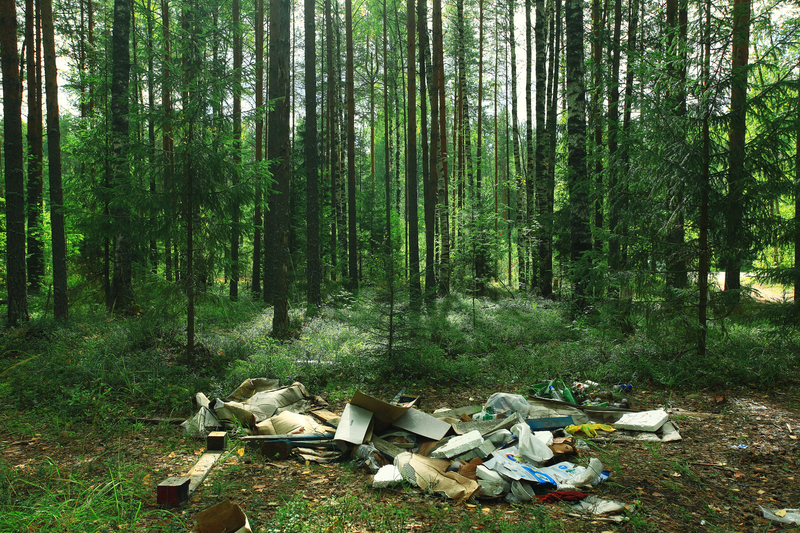Transformable Waste for Renewable Energy Solutions
In today's rapidly evolving world, the quest for sustainable energy solutions is more urgent than ever. As we face the challenges of climate change and dwindling natural resources, transforming waste into renewable energy presents a promising path forward. This innovative approach not only tackles waste management issues but also contributes to energy sustainability.
Understanding Transformable Waste
Transformable waste refers to byproducts and materials that can be converted into renewable energy through various processes. These wastes come from multiple sources, including urban, agricultural, and industrial sectors. Instead of clogging landfills or polluting the environment, they offer a chance to generate clean energy.
Types of Transformable Waste
- Biomass Waste: Includes organic materials such as crop residues, animal manure, and food waste.
- Municipal Solid Waste (MSW): Domestic waste that consists of everyday items discarded by the public.
- Industrial Waste: Byproducts from manufacturing and industrial processes.
- Agricultural Waste: Residues from farming activities, including crop leftovers and excess produce.
Benefits of Utilizing Waste for Energy
Transforming waste into energy not only provides an eco-friendly energy alternative but also addresses waste management issues. Here are some key benefits:
- Reduction of Landfill Use: By converting waste into energy, the amount of refuse ending up in landfills significantly decreases.
- Mitigation of Greenhouse Gases: Energy-from-waste processes often result in lesser emissions compared to traditional fossil fuels.
- Economic Opportunities: The waste-to-energy sector can create jobs and contribute to local economies.
- Energy Security: Diversifying energy sources helps mitigate reliance on imported fuels.

Technologies in Waste-to-Energy Conversion
Various waste transformation technologies pave the way for renewable energy production. Understanding these technologies helps in appreciating their impact and potential.
Biogas Production
Biogas is generated through the anaerobic digestion of organic matter, such as food waste and animal manure. This process occurs in the absence of oxygen, resulting in the production of methane-rich biogas, which can be used for electricity generation and transportation fuel.
Incineration
This method involves burning waste at high temperatures. Modern incinerators are designed to capture and utilize the heat energy produced, converting it into electricity. Although incineration reduces the volume of waste, managing emissions remains a concern.
Pyrolysis and Gasification
Both processes involve heating waste materials at high temperatures in an oxygen-limited environment. Pyrolysis breaks waste into liquid, solid, and gaseous products, while gasification converts waste into syngas, which can be used for energy generation.
Landfill Gas Recovery
As organic waste decomposes in landfills, it produces methane gas. Landfill gas recovery systems capture this methane, preventing its release into the atmosphere and utilizing it as a valuable energy source.
Case Studies: Success Stories in Waste-to-Energy
The Swedish Approach to Waste Management
Sweden has established itself as a leader in waste management, with half of the country's household waste converted into energy. The use of incineration facilities, alongside rigorous recycling programs, exemplifies how effective policies can drive sustainable energy solutions.
Biogas in Germany
Germany's investment in biogas technology has positioned it as a pioneer in renewable energy. Agricultural residues and organic waste from various industries are anaerobically digested to produce biogas, powering homes and the transport sector.
The China Waste to Energy Boom
Amidst rapid urbanization and increasing waste, China is implementing waste-to-energy plants across the country. These facilities utilize advanced combustion technologies to convert MSW into electricity, helping to illuminate cities across the nation.
Challenges and Considerations
Despite the impressive strides in waste-to-energy, challenges persist:
- Public Perception: Concerns over emissions and health impacts from incineration facilities.
- Economic Viability: High initial investment costs and the need for efficient technology can be barriers.
- Regulatory Framework: Diverse regulations across regions can hinder the consistent adoption of waste-to-energy technologies.

The Future of Waste-to-Energy Technologies
The evolution and adaptation of waste transformation to renewable energy solutions showcase a dynamic and promising frontier. As technology progresses, the efficiency and sustainability of these systems are expected to improve. Below are some trends anticipated in the industry:
Integration with Circular Economy Models
Embracing a circular economy can enhance waste conversion efficiency. By designing products that minimize waste and recycling materials through biodegradable means, the transition toward sustainable energy becomes holistic.
Advancements in Material Sorting
Efficient preprocessing and sorting of waste streams enhance conversion processes. Emerging technologies, such as AI and robotics, offer sophisticated methods for waste separation and optimization.
Energy Efficiency Improvements
Ongoing research aims to boost the energy output from waste. Advances in biochemistry and mechanical engineering are paving the way for more efficient energy conversion processes, improving waste-to-energy yields.
Increased Public and Private Partnerships
Collaborations between governments, businesses, and research institutions will drive innovation and implementation. Shared knowledge and financial resources can expediate the development of more effective waste-to-energy facilities globally.
Conclusion
Transformable Waste for Renewable Energy Solutions is an inventive approach that brings hope for the future of clean energy. The strategy not only tackles the twin challenges of waste management and energy demand but also positions society towards a more sustainable and environmentally friendly trajectory. With ongoing technological innovations and societal commitment, transformable waste stands poised to significantly contribute to the global energy matrix.